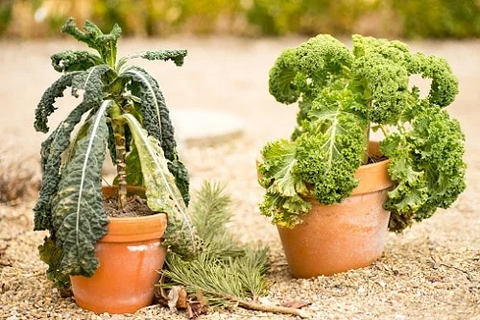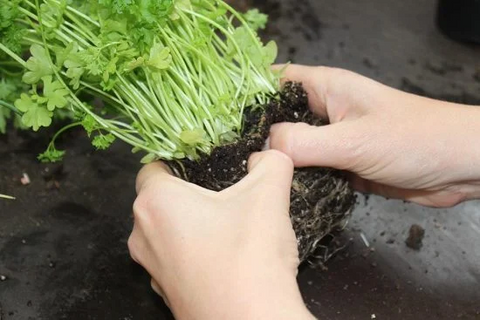Gardening enthusiasts understand that the health of their plants depends on the quality of the soil. A vital but often overlooked aspect of soil health is its microbiology. Soil microbes, including bacteria, fungi, and other microorganisms, play a crucial role in breaking down organic matter, enhancing nutrient availability, and improving soil structure. Raised beds offer an excellent opportunity to optimize soil biology for successful gardening. In this blog post, we'll delve into the world of soil microbes, explore their significance, and provide tips for maintaining healthy soil microbiology in your raised beds.The following content also has some reference value for raised garden beds.
The Importance of Healthy Soil Microbes
Soil microbes are tiny organisms, including bacteria, fungi, protozoa, and nematodes, that reside in the soil and play essential roles in the garden ecosystem. Here's why they are so important:

- Nutrient Cycling: Soil microbes break down organic matter and transform it into essential nutrients for plants. This nutrient cycling ensures that plants have access to the vital elements they need to grow.
- Disease Suppression: Some soil microbes act as natural antagonists to plant pathogens, helping to keep harmful diseases at bay.
- Improving Soil Structure: Soil microbes help create aggregates that improve soil structure, making it more conducive to root growth and water retention.
- Decomposition: Microbes break down organic matter like dead plant material, returning it to the soil as humus, which enriches the soil.
- Nitrogen Fixation: Certain bacteria convert atmospheric nitrogen into a plant-available form, enhancing plant growth.
Tips for Maintaining Healthy Soil Microbes in Raised Beds
Now that you understand the importance of soil microbes, let's explore how to maintain a healthy microbial population in your raised beds:
1. Avoid Over-Tilling
Over-tilling or excessive soil disturbance can disrupt the soil ecosystem by destroying microbial habitats. Minimize tilling in your raised beds and opt for no-till or reduced-till practices.
2. Organic Matter
Regularly add organic matter to your raised beds. Compost, well-rotted manure, and mulch provide a food source for soil microbes. They also help improve soil structure and water-holding capacity.
3. Diverse Plantings
Plant a variety of crops in your raised beds to encourage a diverse microbial community. Different plants exude various root exudates that attract different types of soil microbes.
4. Reduce Chemical Inputs
Chemical fertilizers, pesticides, and herbicides can harm soil microbes. Whenever possible, opt for organic or natural alternatives to reduce the chemical load in your garden.

5. Minimize Soil Compaction
Avoid walking on your raised beds, as it can lead to soil compaction that reduces the oxygen available to soil microbes. Consider using pathways between beds to minimize soil disturbance.
6. Use Cover Crops
Plant cover crops during the off-season. These crops protect the soil from erosion, enhance organic matter content, and provide a habitat for beneficial soil microbes.
7. Mycorrhizal Fungi
Mycorrhizal fungi form symbiotic relationships with plant roots, helping plants access nutrients and water. You can inoculate your raised bed with mycorrhizal fungi to boost plant health.
8. Water Wisely
Overwatering or poor drainage can drown soil microbes. Water your raised beds appropriately, ensuring that the soil remains consistently moist but not waterlogged.
9. Avoid Harsh Chemicals
Avoid using harsh chemical pesticides that can harm beneficial soil organisms. Encourage natural predators and beneficial insects to control pests.
10. Crop Rotation
Practice crop rotation to prevent the buildup of soilborne diseases and pests. Different crops attract different soil microbes, helping to maintain soil health.
Benefits of a Healthy Soil Microbial Community
Maintaining a thriving soil microbial community in your raised beds brings a host of benefits to your garden:

- Improved Plant Health: Healthy soil microbes contribute to plant vitality by providing essential nutrients and disease suppression.
- Increased Soil Fertility: Microbes transform organic matter into plant-available nutrients, enriching your soil.
- Reduced Soil Erosion: Microbial activity helps create stable soil aggregates that reduce erosion.
- Water Efficiency: Well-structured soil with a healthy microbial population retains water more efficiently.
- Sustainable Gardening: Nurturing soil microbes aligns with sustainable and environmentally friendly gardening practices.
Conclusion
Cultivating healthy soil microbes in your raised beds is a rewarding and environmentally conscious endeavor. By understanding the importance of soil biology and implementing these tips, you'll not only enjoy a more bountiful and thriving garden but also contribute to the well-being of the broader ecosystem. Raised bed gardening is an ideal platform to experiment with these principles, as it allows for more control and customization of your garden's soil conditions.
Remember that beneath the surface of your garden lies a dynamic and diverse world of microbes, working diligently to support the growth of your plants.









